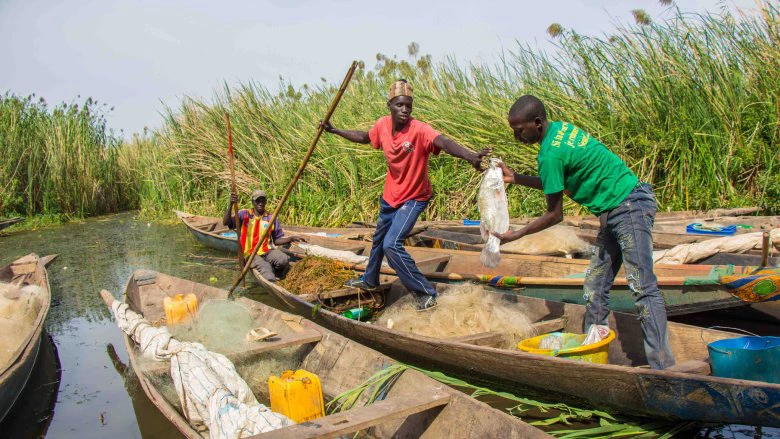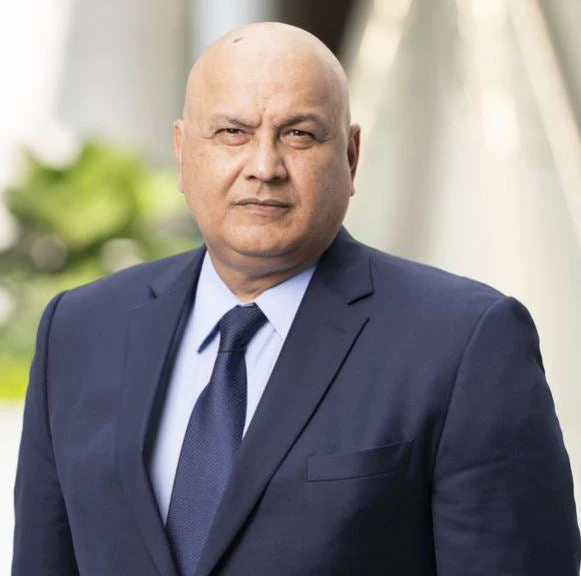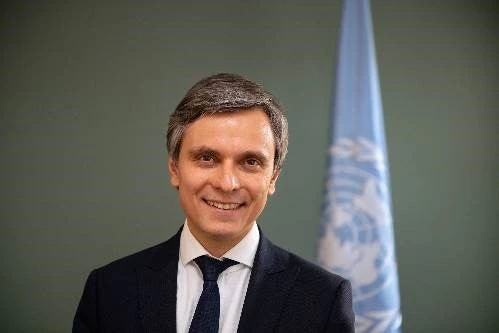 Fishermen on a tributary of the Senegal River, which courses through Guinea, Mali, Mauritania, and Senegal in West Africa. Credit: Sarah Farhat/World Bank.
Fishermen on a tributary of the Senegal River, which courses through Guinea, Mali, Mauritania, and Senegal in West Africa. Credit: Sarah Farhat/World Bank.
Concern and hope are the two sentiments this World Water Day, with its theme, Water for Peace. Concern because of the pressure today on the world’s freshwater resources from climate change, fragility, and ecosystem degradation. Hope because, despite this, the international community is coming together to support countries and basin organizations working on cooperative water management through partnerships like the Global Facility for Transboundary Water Cooperation and the Transboundary Water Cooperation Coalition.
Through these, and the Convention on the Protection and Use of Transboundary Watercourses and International Lakes (Water Convention), and at gatherings, such as the Global Forum on Transboundary Water Cooperation for Climate and Development in July 2023, we see the power of partnerships when it comes to promoting cooperation over water resources.
It goes without saying that water is a fundamental resource for life on earth, its management critical for the well-being of human societies. But it can also be a source of tension and conflict, particularly in regions where it is scarce or where its allocation is contested. As populations grow and climate change impacts its availability, the potential for disputes over water is likely to increase. Institutions and mechanisms that can, through dialogue and cooperation, address conflict, limit trade-offs, and maximize shared benefits are crucial for peace and development.
So far, however, only 24 nations have operational arrangements for water cooperation for all their basins shared with neighboring countries, as the second round of reporting on SDG indicator 6.5.2 on transboundary water cooperation, carried out by UNECE and UNESCO, shows. Cooperation on transboundary aquifers is even less advanced: The work on SDG 6.5.2 identified just eight aquifer and groundwater-specific arrangements worldwide.
Given this lack of agreement on mechanisms governing transboundary waters and the magnitude of challenges being faced by communities in river basins and elsewhere, much more support is needed from the international community for transboundary water management. Even more so now as water has the unique potential to serve as a catalyst for cooperation and dialogue.
Toward more cooperation
Whenever stakeholders come together to manage shared lakes, aquifers, and rivers, they forge trust, collaborative frameworks, and mutual benefits beyond these that contribute to peace and stability. In part this is because the shared management of resources involves the collection and exchange of data, joint decision-making, and the equitable allocation of water. These cooperative processes can help parties address the root causes of water-related conflicts—and develop solutions acceptable to all. They also create more social and economic benefits from water than would be available if countries managed this precious resource unilaterally. Global experience shows that transboundary waters cooperation increases the type and size of benefits — the size of the “pie” — that countries can obtain from sustainable water management.
UNECE and the World Bank’s Cooperation in International Waters in Africa (CIWA) program are supporting the development of agreements for the Senegalo-Mauritanian Aquifer Basin in the Western Sahel. Our lessons from it are relevant for other transboundary aquifers around the world.
Cooperation over water extends to broader development, with frameworks and joint institutions providing a powerful enabling environment. River Basin Organisations are the best example of joint institutions to manage shared water resources, helping countries to identify shared visions and implement joint investments. Based on the Water Convention, 100 or more agreements have made the availability of water more predictable, led to fewer losses from floods and droughts, or supported the agriculture and energy sectors.
These enhance livelihoods and reduce poverty in communities in a river basin and beyond it. Such positive outcomes can alleviate some of the socio-economic pressures that contribute to fragility and conflict.
African basins
The recently completed Regional Rusumo Falls Hydroelectric Project will benefit people in Burundi, Rwanda, and Tanzania. This project materialized after more than a decade of dialogue spearheaded by the Nile Basin Initiative and its technical office, the Nile Equatorial Lakes Subsidiary Action Program.
In the Senegal Basin, 20 years of World Bank engagement with Senegal River Basin Organization (Organisation Pour la Mise en Valeur du Fleuve Sénégal) facilitated the integration of Guinea—home to the river’s headwaters—information-sharing, a master plan, and cost-sharing formula.
Still more needs to be done. In this respect, globalizing the Water Convention is a promising signal. Since the Convention’s global opening in 2016, 11 countries from Africa, Latin America, and the Middle East have joined it—five in 2023—and more than 20 are in the process of doing so.
The Water Convention, serviced by UNECE, has built cooperation among riparian states at both political and technical levels: In 2017, it supported a framework to prevent conflict related to the sharing of water resources in the Economic Community of Central African States.
By joining the Water Convention, countries signal their commitment to cooperation and get help defining their priorities and drawing up a roadmap to do so. The Transboundary Water Cooperation Coalition—a diverse, multi-stakeholder partnership of governments, intergovernmental organizations, regional integration organizations, international financial institutions, academia, and NGOs—aims to raise the profile of transboundary water cooperation at all levels by 2030. Leveraging the comparative advantages of each, it paves the way for coordinated action to tackle the polycrisis related to water.
Marking World Water Day 2024
This World Water Day is an important moment for us, an opportunity to rethink the ways we support transboundary water cooperation. Our collective experience shows that when we join forces to provide strategic support to countries and river basin organizations, the benefits are much higher. At a time of complex global crises, the world needs more coordinated action and financing of public goods. Peaceful and effective cooperation to develop shared waters is one important public good, and it should be financed as such.
The World Bank and UNECE will continue to work together to leverage the potential of water as a resource for fostering peace and stability, particularly in fragile and conflict-affected areas. As the world faces more water scarcity and more climate-related challenges, the role of water cooperation in peacebuilding will only become more significant.



Join the Conversation